A Pilot Explores the Germanwings Tragedy
It’s okay that I am away from my family to take you to yours. It’s my job, my pleasure, my passion, my life as a pilot. I don’t expect you to know that it took me many years and thousands of training hours to be here for you. I have trained in all weather conditions, in many types of aircraft, and in complicated airspace. From a two passenger, single engine airplane to the heavy metal we ride today, I have learned through exposure. The world and Mother Nature can be intense, but I know how to take this aircraft through, or around, everything that life has to offer. I am here for you. I have deepened my knowledge higher and wider than aviation by earning my college degree while also learning how to fly. I have become a pilot and everything about me will keep you safe; it is a pilot’s creed.
Aviation is my life and its requirements are unlike any other career out there. We don’t leave the job at the cockpit door. On our days off, we train, study, get tested, stay fit to pass flight physicals, and deal with base changes, commuting and junior assignments. We look our partners and children in the eye and tell them we love them, and apologize for missing another holiday. We will celebrate when we get back, because we know we will get back. We have become a pilot and everything that entails. Our families have learned to live with a pilot and we thank them for it.
Our commute to work is often as a passenger, so we understand your frustrations and fears. But, when a flight is delayed, we are grateful for the reason. It’s because someone is keeping you safe. Safe from the unruly weather, a mechanical malfunction, or an anomaly that needs attention. Pilots don’t take you to the sky unless we know we’re all safe, and sometimes that takes a little extra time. We know time is precious, we also know life is too.
When we hear that a pilot has violated our creed, we go through and beyond sadness to anger. It’s painful to have a person crumble everything we are and act with malice from a coveted pilot position. It misrepresents everything we are and do for you. We ask that you trust us, because we’ve earned your trust. We guard you with our own dedicated lives.
So please remember, we are pilots, but the person who did this was not a pilot. A true pilot would never intentionally use their position to harm others. With 630 hours, he had not been filtered and exposed to enough experience. He slipped through the cracks of a foreign carrier, which means there are seams in the transition. In the U.S., you will not find anyone with less than 1500 hours in the right seat of a commercial airliner – and the majority have thousands more than that. They will have been exposed to experience and filtered more thoroughly. It doesn’t mean it can’t happen, but it reduces the already miniscule odds. The stats don’t retract the Germanwings tragedy, but as you read these words, there are 5,000 U.S. flights in the air. There are 3 million passenger in the world today that will get to their destinations safely. Every one of those passengers had the benefit and trust of another person’s experience as a pilot.
Tragedy is hard to put into perspective because it has such focus. Don’t blur the rest of the reality. Pilots prove themselves continuously and more testing will prove nothing except that we can take tests. We live, breathe, think, discuss and see the world as a pilot. We have the right to have your trust, but we don’t demand, we ask. We ask by proving to you every day that we live our life to be in this pilot’s seat. The pilots sitting in the front of your airplane will get you there safely. It is their creed, and they live every aspect of their lives for it.
(Featured Image: Sebastien Mortier, CC2)



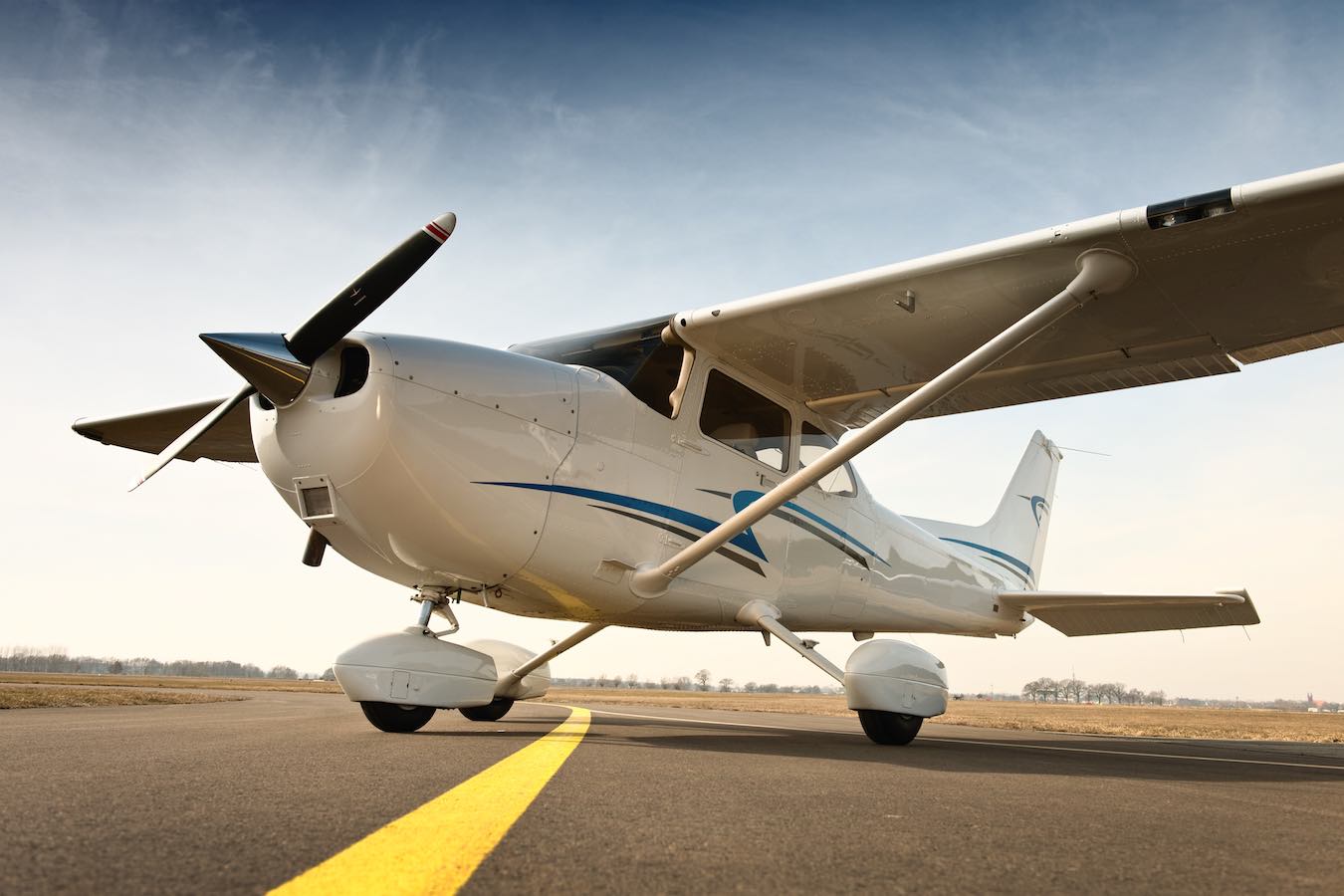
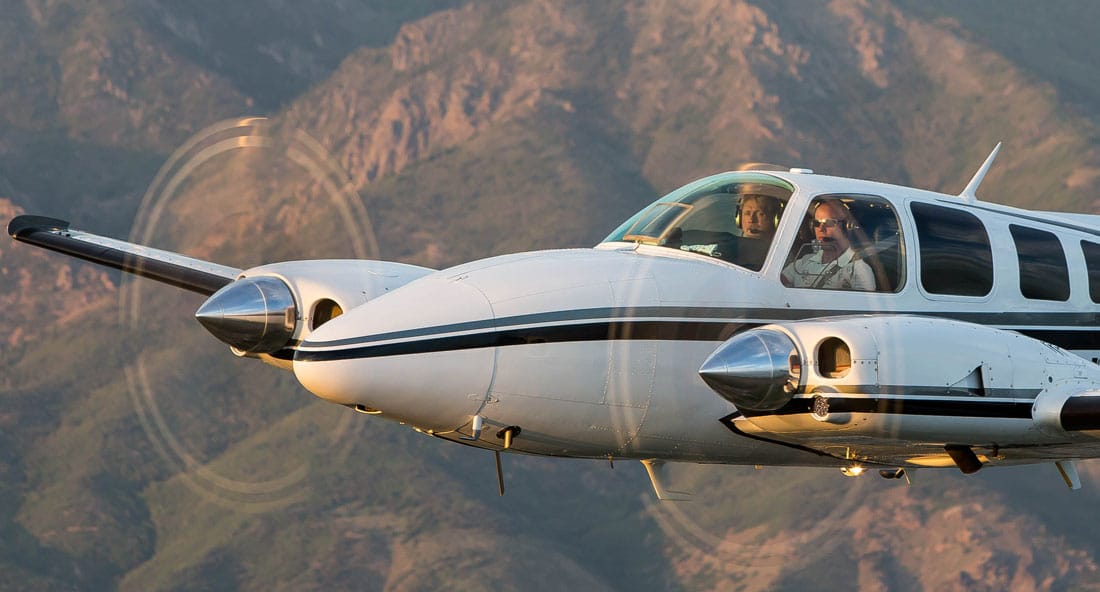
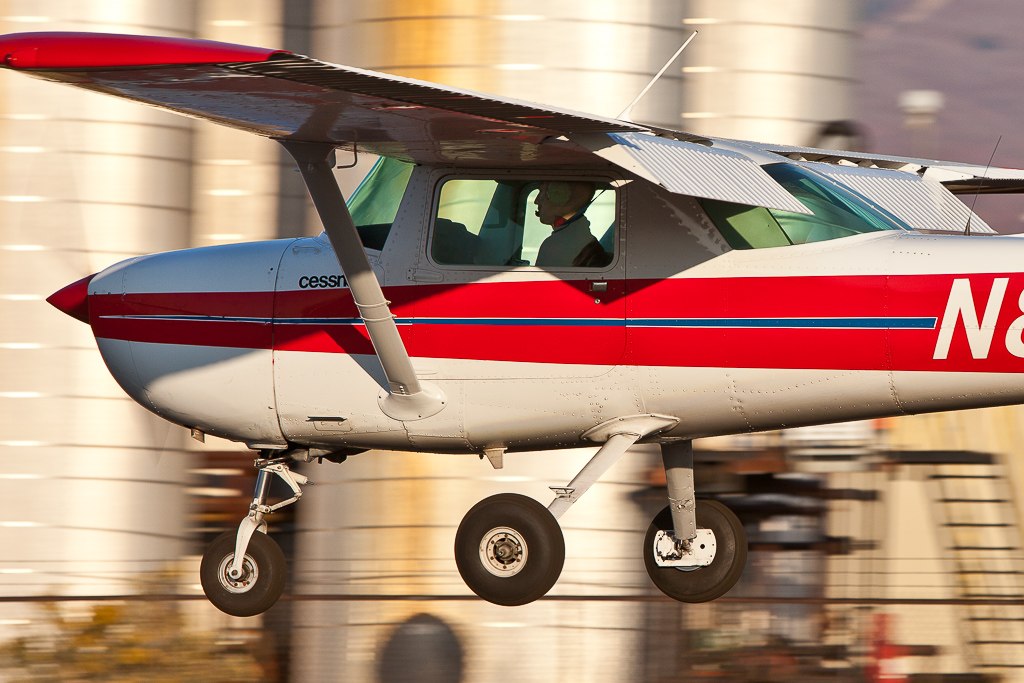
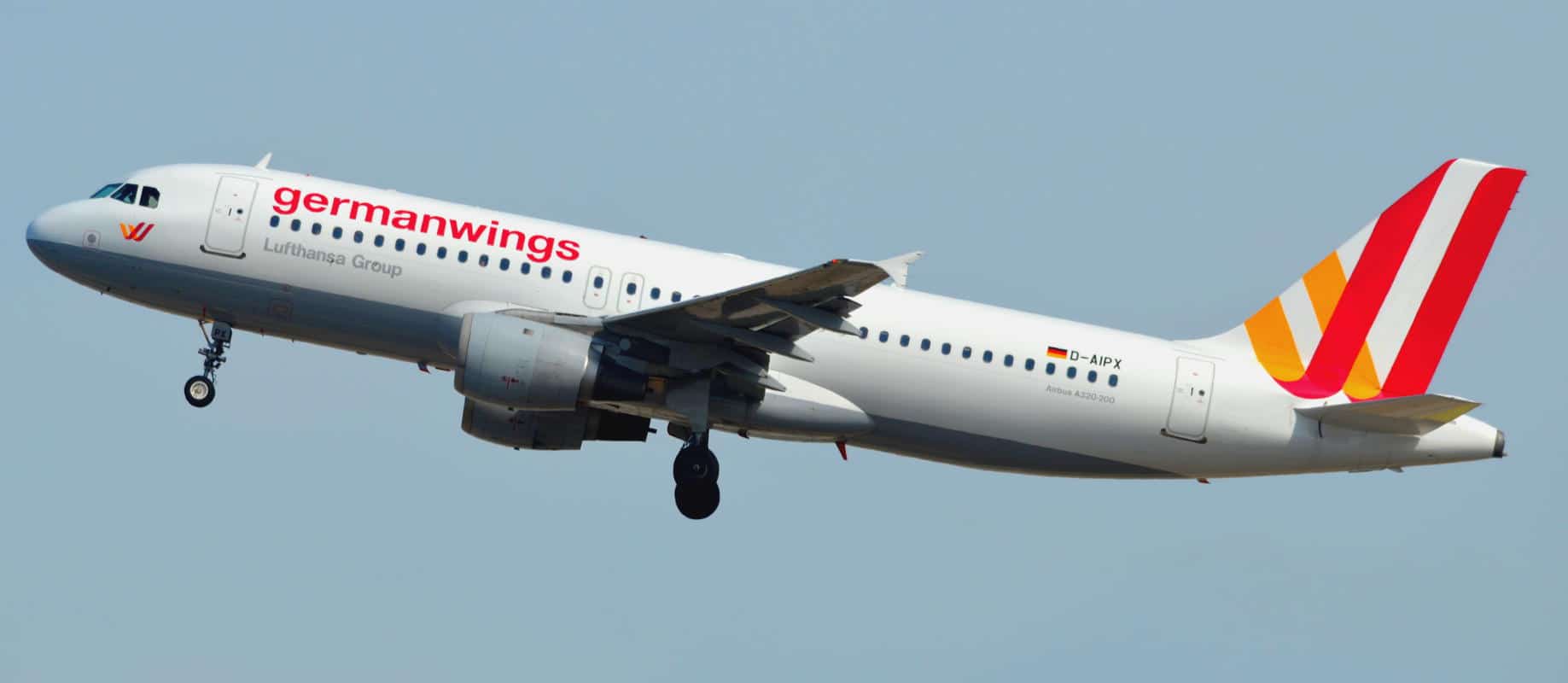
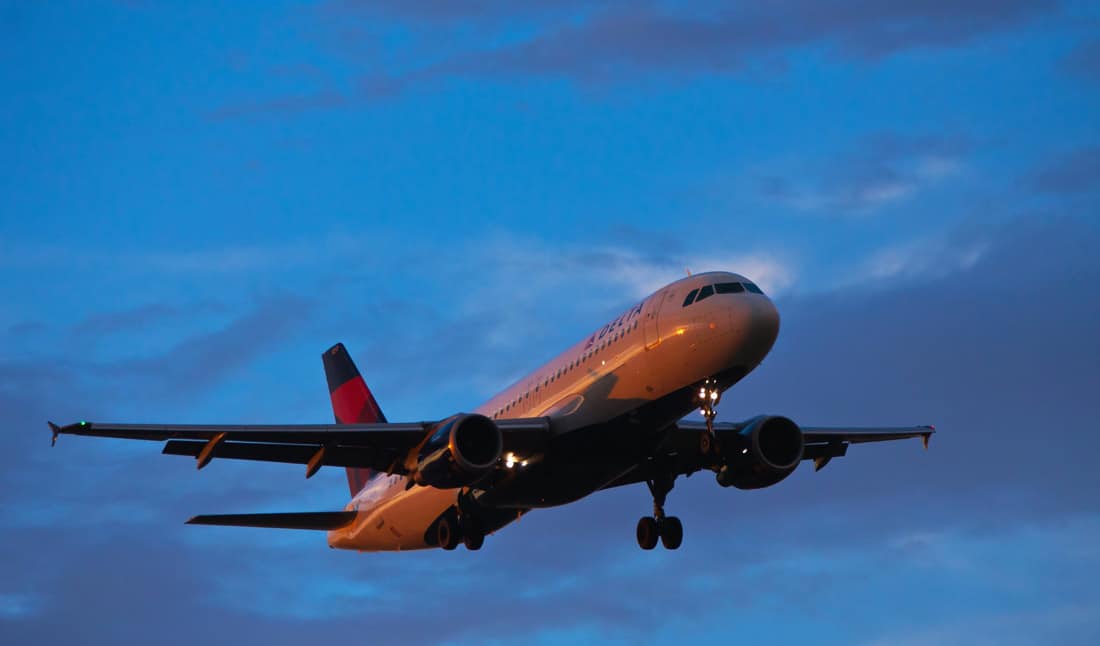
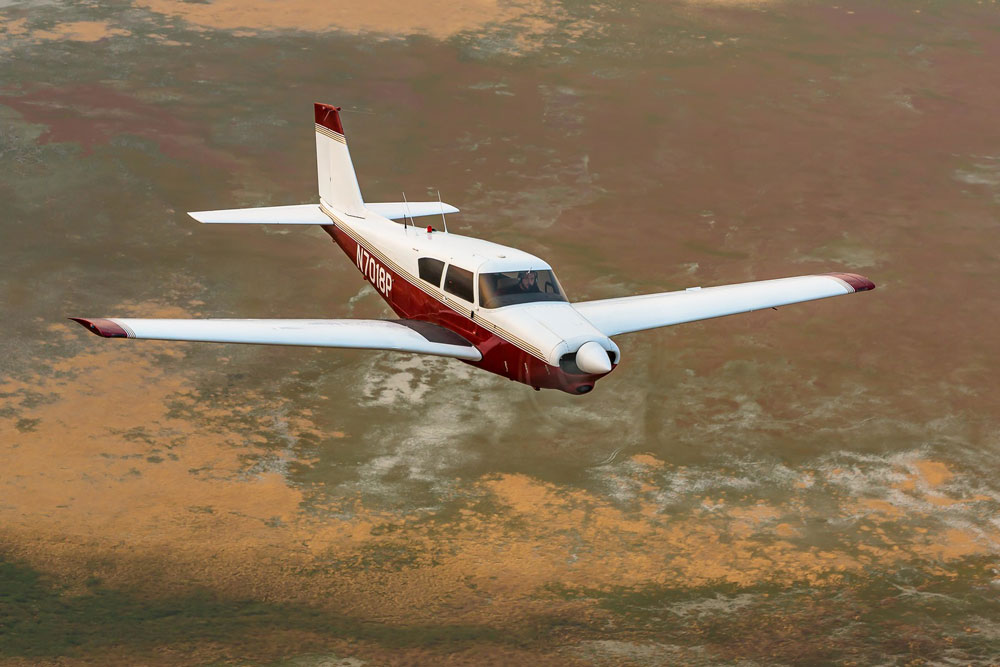
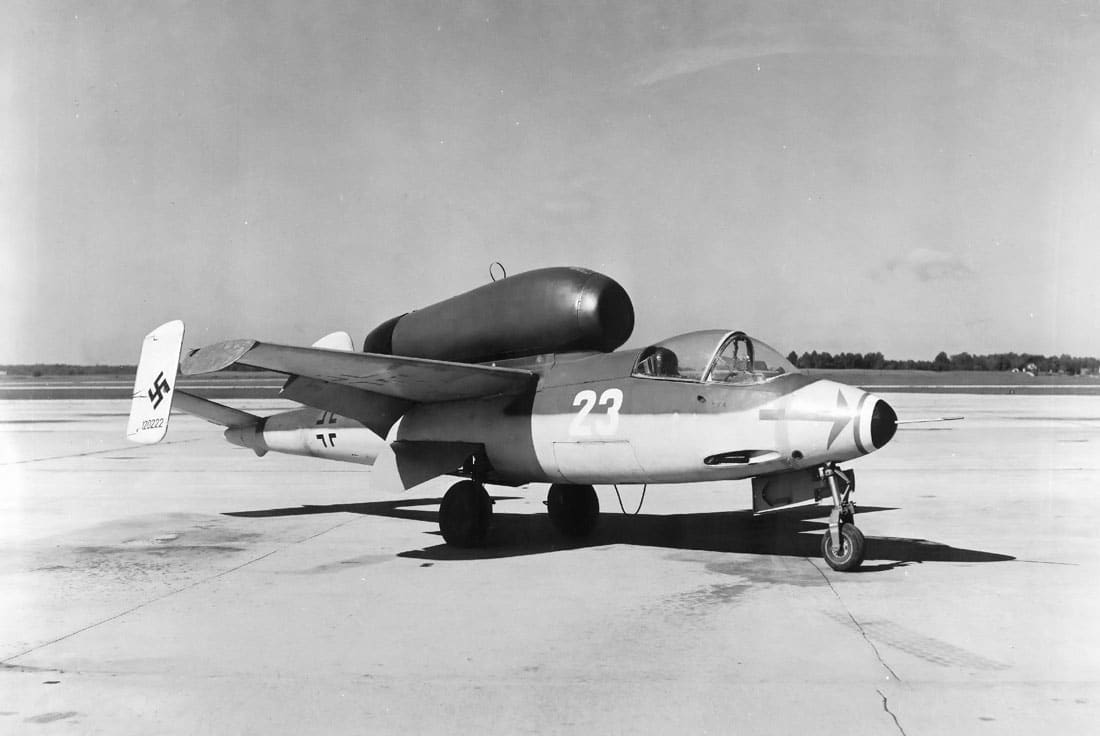
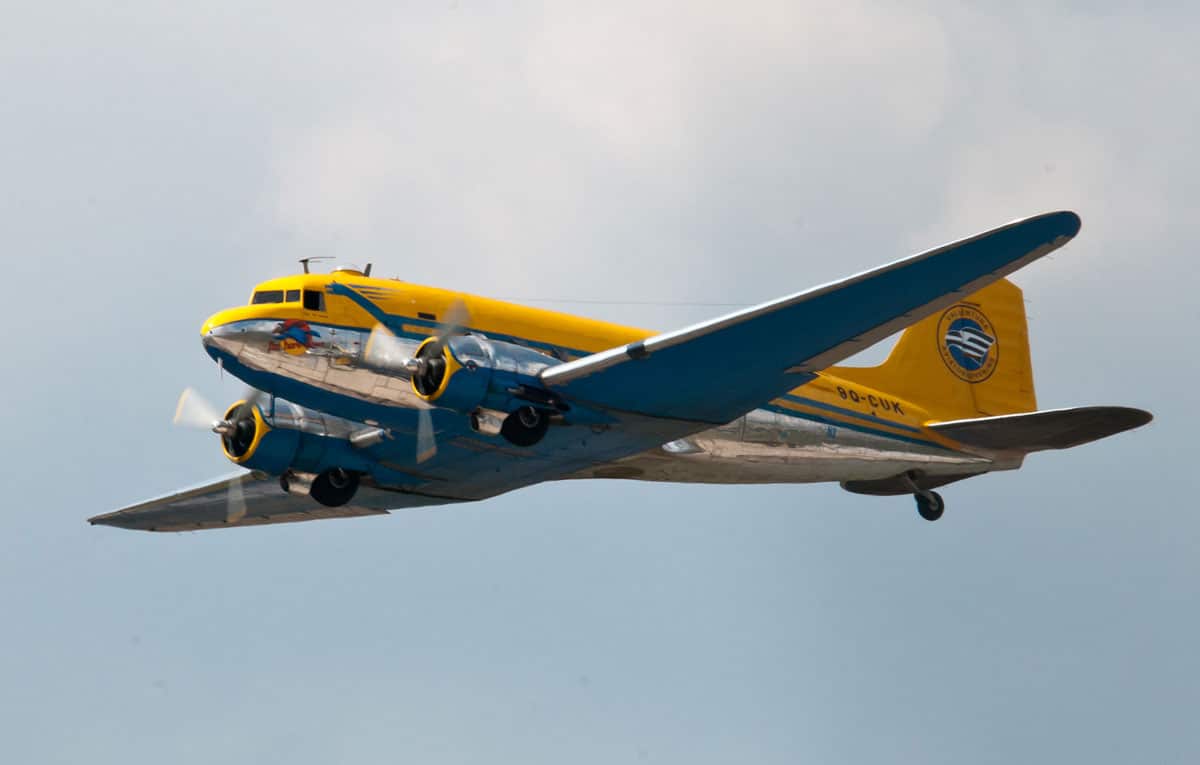
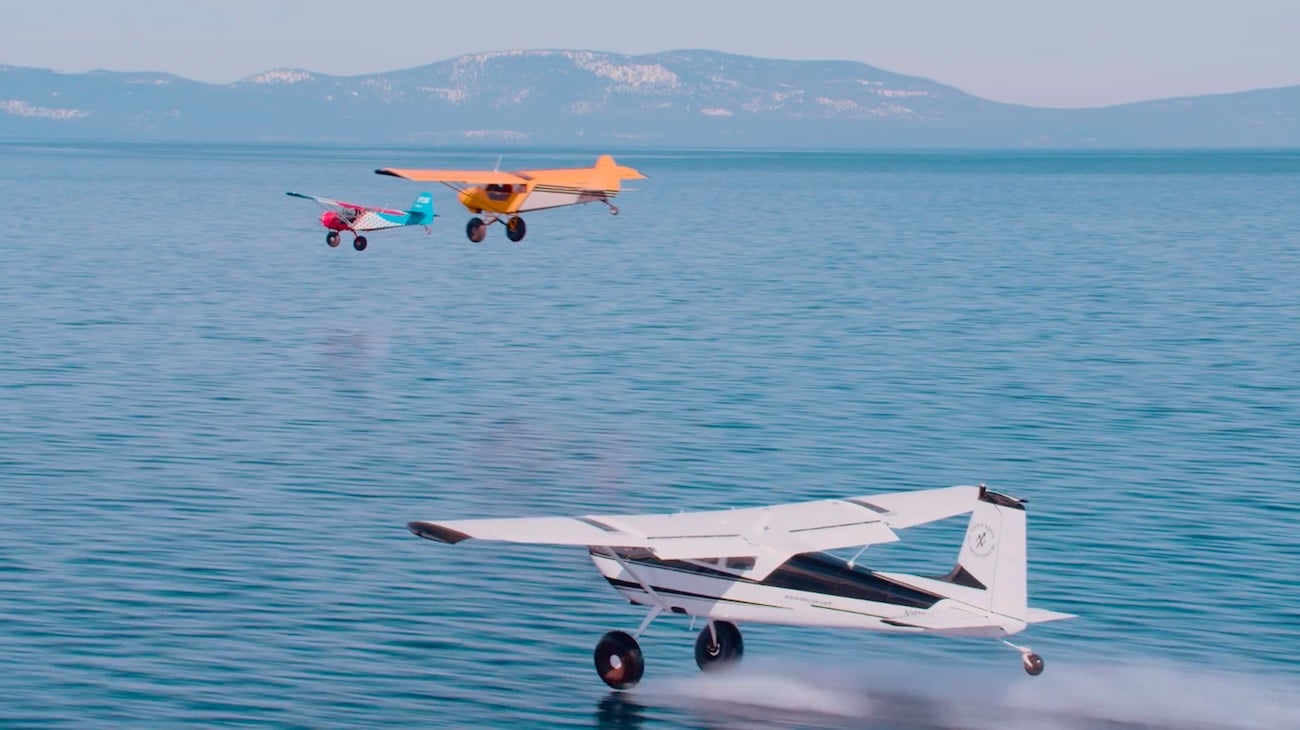
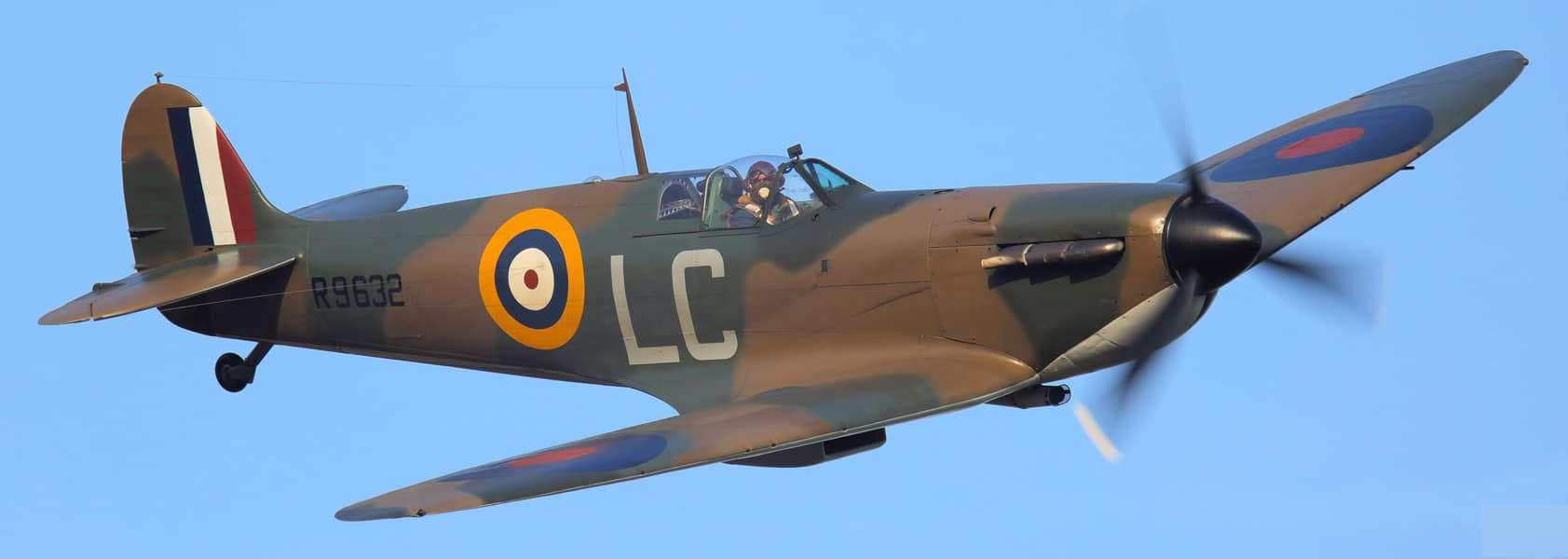
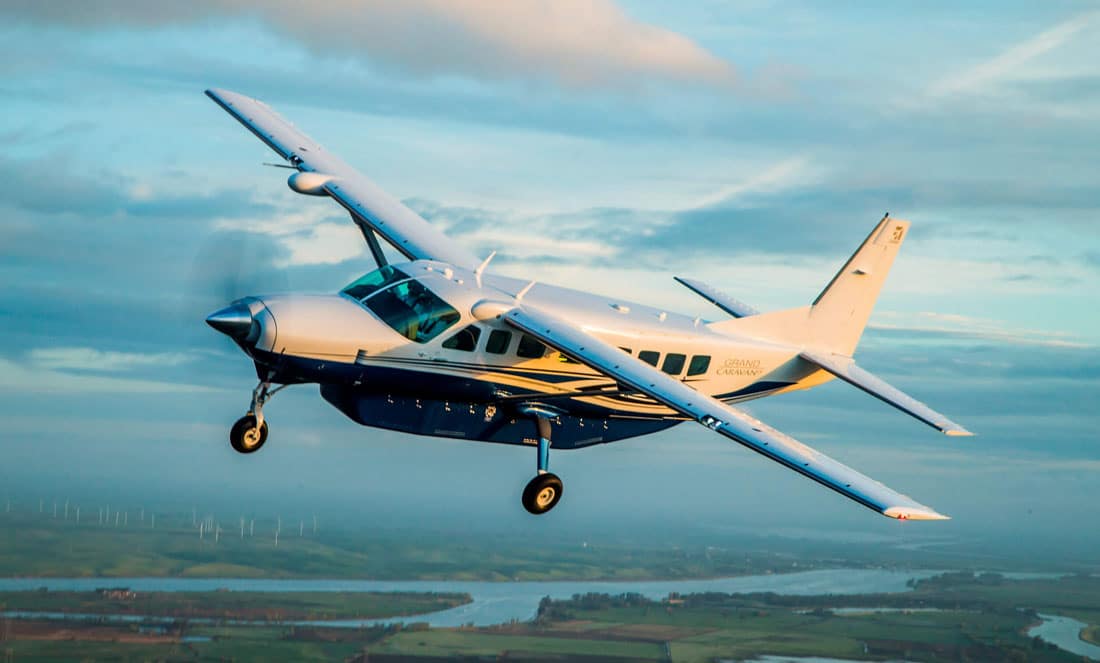
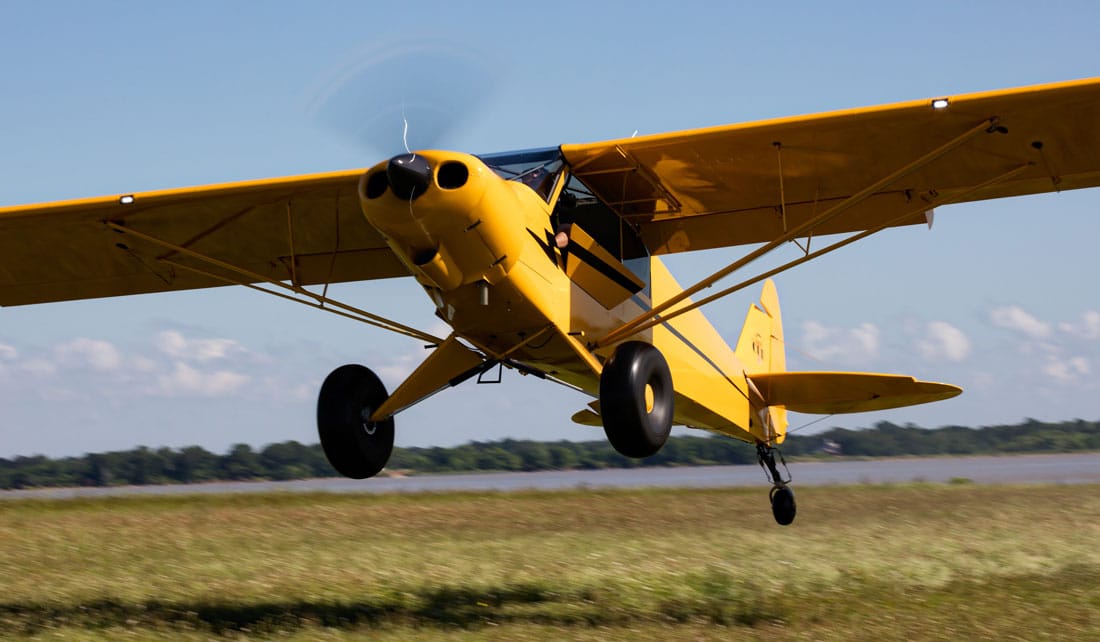
Another great perspective from Erika. She should be on TV instead of the talking heads they give us now. Erika has an unique view of the industry developed through her years in the cockpit.
Typical women’s perspective, have to turn everything into it being about them!
if he is not a pilot, what was he??? A truck driver, transport worker, flight attendant, bar tender, ???? He was a pilot, get over it.
The real issue is the fact that he a medical problem, depression! So let’s focus on how to deal with this in any work related situation not just in our profession.
A depressed cop with a gun, a depressed tank commander, a depressed president of the USA with a hand on the red button, can take out just any lives!
It’s not about the job, it’s about the person, Stoopid!
WOW! Are YOU a major, angry dick!
A beautifully written letter. Up to a point where you refer to the guy with 630 hours of not being a pilot. I think this is an insult to all military, general aviation, flight instructors and yes, ab initio international pilots. Many of these “non pilots” as you refer to them may lack the wealth of flight experience usually seen on the flight decks of US Airlines, but have undergone very thorough training, have college degrees and thrive in the positions they are in. Actually calling a “low time” aviator a “non pilot” is pretty arrogant !
The Germanwings First Officer did no slip through cracks of an international airline. He was trained by Lufthansa the same way thousands before him were trained. He was an “ab initio” pilot, who joined the Lufthansa flight school with yes, almost zero hours just to spend two years of hard training to make it to the First Officer seat of an airliner.
While we can debate the pros and cons of “ab initio” training, this is a very common practice with most airlines outside of the United States; many of these airlines like Lufthansa have an excellent safety record with an outstanding reputation, with hundreds of today’s Captains piloting their aircraft safely around the world. So the US way is not the only way. Different countries, different systems, different philosophies.
If there were cracks the Germanwings pilot slipped through, than there are cracks in the German aviation and medical system which I am sure further investigations will reveal. The crash was not caused by an operating error of a 630 hour pilot ! This crash was intended. This crash was simply murder. And as an airline pilot I feel the pain and disgust, that someone of our profession could have committed such a crime. A profession we take so much pride in when it comes to safety !
So perhaps the focus should be on how this individual could slip through cracks of a medical system gone wrong instead of pointing fingers at a system which generally works well anywhere else outside of the United States.
Getting back to 630 hours. At which point does a pilot earn the right to be called a “pilot” ? You are right, today you will rarely find pilots with less than 1500 hours on a flight deck of US airliner. This rule went into effect not a long time ago and the accident which sparked the change to this rule was caused by an operating error of a Captain with more than 5000 hours of flight experience.
Prior to this crash many regional pilots were hired with as little as 400 hours to safely operate aircraft which may not require a complex system management, but are much more challenging to handle.
Respectfully,
Mike
14000 hour Airline Captain. Hired by first (US) airline with 520 hours.
Hi Mike! Yep, I agree that 630 hours has nothing to do with talent, but ironically, your comments proved my point. Military, general aviation, flight instructors and yes, ab initio international pilots are all doing just that – getting hardcore experience. Military pilots are getting top military training, flight instructors are getting and giving the best lessons anyone can have in all types of weather, and yes, ab initio internal pilot are all being exposed to different types of flying. We all had 630 hours in our logbook at one time. The point of the article is that anyone that drives an airplane full of passengers, including children, into the side of a mountain on purpose, does not have the right to the title of “pilot.” It’s an insult to all the great pilots out there, regardless of hours in their logbooks…
Then that’s what you should have wrote, b/c that’s not how it came across in your original article.
Also, stating ” its requirements are unlike any other career out there” is a misnomer. No career is the same as the next and there are several other careers that require continued training on their off times. New methods and technologies are out all the time and surgeons, EMT, military, police, air traffic controllers, mechanics and even IT professionals all have to continue training and each of them has an impact on everyone’s lives. People built that plane you’re flying and if there’s a serious mechanical failure in flight, it very well could be your last.
I know many pilots and few would write in such an arrogant fashion.
“So please remember, we are pilots, but the person who did this was not a pilot. With 630 hours, he had not been exposed to enough experience. He slipped through the cracks of a foreign carrier”,
Erika, thank you for taking the time to respond. I just quoted what you wrote and it’s very easy to take it for how it sounds. But this is not about you being right or me being wrong. This is not about the flight time, the experience. The 630 hours have nothing to do with this accident.
This is about yet another, yes yet another accident of this kind committed by a person from our profession and this is especially painful for our proud group of airline pilots. This is about mental illness. By saying yet another accident, please read about the LAM Mozambique crash in 2013 and refresh yourself on the Egypt Air accident. Same results, only this time committed by a Captain (LAM) and a senior First Officer (Egypt Air). The Germanwings was not a first, but since it happened to one of the more prestigious airlines, the outcry is tremendous.
I will still respectfully disagree about this guy not being a pilot. He graduated and got qualified to operate an aircraft. He was licensed, rated, passed all his tests so yes, this made him a pilot. And it’s very hard for us to accept, that an individual from our group of professional pilots could have committed such a crime.
It’s about time that we the pilots realize, that even in our proud group of aviators there are people who need help. Who cry for help, but are unable and afraid to ask and there fore do not get the support they may need. They are left alone to deal with their problems as exposing a weakness or an illness is still unacceptable in our profession of “super humans”.
While beyond disgusted with these crimes I wonder how desperate these pilots must have been to commit such a terrible crime and if at least one of these accidents could have been prevented if these pilots would have seen a way to get help and more studies were done, yellow flags raised and more help offered.
This accident (and the others mentioned) is about mental illness and not about flight time.
I like what you’ve said Mike. I myself have zero flight experience, but have family that work for both Lufthansa and Germanwings.
I found the beginning of this article to be touching, inspiring, and thought-provoking. It explained all the complexities that accompany the journey of becoming a pilot. It’s every pilot’s passion to fly and to do so safely.
However, I don’t appreciate the quick turn-around that appears in this letter. The entire second last paragraph was dedicated to the idea that if every pilot had 1500+ hours of flight experience, then “it [would] reduce the already minuscule* odds”. In particular, the section that stated: “In the U.S., you will not find anyone with less than 1500 hours in the right seat of a commercial airliner – and the majority have thousands more than that” was outright arrogant. This is to say, that the U.S. Airlines are obviously more trustworthy and more reliable than all other airlines. The author failed to include the facts behind this particular incident, being that “He [the co-pilot] voluntarily refused to open the door of the cockpit to the pilot and voluntarily began the descent of the plane.” – (Sawer, 2015). A difference of 870 hours of flight experience would not make a difference in one’s mental sanity. Based on all of the evidence (provided thus far), it is easy to conclude that no, this PILOT’s flight experience had no correlation with the crash itself – but instead the crash was a result of the co-pilot’s mental state of mind. Erika, I commend that you defended your views in the comments section, and I agree with what you said there, but I wish it had been clearly stated in the initial letter.
Thanks Mike for saying exactly what I was thinking. From a Flight Instructor with 683 hrs.
Well said, Mike. As a 14-year airline captain, I’m pleased that you spoke up and hit the nail on the head. I don’t care how many hours a pilot has in their logbook. Do you have a certificate from the FAA? You are a pilot, just like I am. We are burying the bigger issue here (and not one pilot should be surprised by this). The hubris of pilots…it is drilled into us from the first time we step into a cockpit. Is it any wonder that when you combine this with the expectations and the lack of any available avenues for help that these incidents might happen? And no, Germanwings is far from the first time this has happened. If we keep this up, it won’t be the last. And that is the ongoing tragedy of it all. Pilots are not superhuman. We’re mere mortals. Thanks again for speaking up, Mike.
Hi, I agree with you.
10,000hr GA Pilot
Hi Erika, that was lovely to read. But I have to disagree on your take that low hour pilots aren’t pilots. I think your being a bit callous there. I have great respect for people who’ve worked hard and long to get to being a first officer in a commercial airline. However, the U.S does not make you do that to keep standards. It does that because of supply and demand. It’s economics. The economics are different in other parts of the world where aviation is growing at a rate that the U.S only saw a long time ago so pilots get in earlier. They’re all dedicated pilots and I’ve had the pleasure of watching their dedication and being one of them. You saying that back then I was not a real pilot and that I took advantage of some glitch in the system is quite unfair. It seems an immature thing to say. If your point was to tell people not to judge all pilots by this incident then you’ve defeated yourself. I’m asking people not to judge the rest of us because of your views on the rest of the pilots out there.
Erika, Before writting anything do you know really the truth about that story? Or are you like the 90 % of people who believe what the média says.
1) The French minister said Few Hours after crash ” he was not refered as a potential menace” Few Hours later somebody correct the sentence saying ” a terrorist plan is out of a question”
2) 1 hour after crash on internet you could see coment ” IS is proud of you brother”
Few Hours later ALL WAS ERASED FROM INTERNET
3) A german reporter reported Andreas Lubitz was going to a mosq and was converted to Islam. DID YOU EARED THAT ANYWHERE?
4) Girlfriend said ” he wanted to leave a mark…..” He was not well….he was depressed….. Did you see anybody on TV saying that ? EVERYBODY IS UNKNOW no face, no name anywhere.
5) US. Government knew before the world what happened. ????The french goverment was in charge on the case YOU DO NOT THINK ALL THE FALSE INFORMATION WAS PLANED?
6) Most of the time when the conversation from black box was revealved autorities make the media listened the real conversation in cockpit ( Air crash show) DID YOU EARED ANYTHING from Mr Lubitz mouth?
7) If your child is accused by the world of killing 150 people, you won’t talk to press to defend him? ( even if you think it’s possible) DID YOU EARED ANYTHING FROM THE PARENTS?
8) If you was the autorities, what should be better to tell the world
a) The copilot was mentaly hill and he killed himself.
b) Nobody is safe of taking any plane, terrorist are all over
9) Did you know any sportive person depressed? WHEN YOU DEPRESSED SPORT IS THE LAST THINK YOU SHOULD DO
10) Did you work anytime in special agencies? YOU WON’T BELIEVED HOW IT’S EASY TO CREATED A STORY TO COVER THE TRUTH.
11) Do more investigation and you will find more detail. Like why french autorities still look for cell phone ( they found 40) and the zone is blocked 40 Km around.
WHAT THEY WANT TO HIDE?
Sorry for the faults, I’m french and I couldn’t let you tell anything.
Think before writting, you won’t no the truth and me too………..
I totally agree with you. Two thumbs up.
I hope I get to be mentored by someone like you Mike. It makes me very proud to be a pilot when I see this kind of attitude. Hope I can get to meet you and shake your hand!
This is appalling lazy writing. The only reason why copilots in the US have to have 1500 hours is because of this:
(See airtifactsjournal website article)
In fact this loss was caused by bad CRM (among other issues) and demonstrates the deficiencies of the training/selection regime in the US (not addressed by the change in legislation) as well as anywhere else in the world.
This “Letter from your Pilot” fills me with great sadness as every word he speaks is so true and then it also makes me so mad as I am the mother of a son that has these same passions as this man describes with more than 4000 hours (the last time I asked) and he just cannot get an airline that will give him an opportunity for a position, good heavens how did this pilot get a job with those few hours!!!.
I know that this is nitpicky, however the FAA does allow for a restricted ATP certificate if you have graduated from an approved school, So there are some exceptions to the 1500 hour rule. Therefore you can fly for an airline with less than 1500 hours .
The exceptions are:
Military pilots need only 750 hours total flight time and 200 hours cross-country time
Graduates from approved four-year universities with a Bachelor’s degree and an aviation major need only 1000 hours total flight time and 200 hours cross-country time if they:
Complete at least 60 credit hours of aviation related coursework, and
Hold a Commercial Pilot Certificate that was earned through the university’s part 141 training program
If they complete less than 60 credit hours, but at least 30 credit hours, they need 1250 hours total flight time and 200 hours cross-country time
Graduates from approved two-year colleges with an Associate’s degree and an aviation major need only 1250 hours total flight time and 200 hours cross-country time if they:
Complete at least 30 credit hours of aviation related coursework, and
Hold a Commercial Pilot Certificate that was earned through the school’s part 141 training program.
Frankly I must say that less than 1500 hours DOES have an impact on day to day flights. These low timers are labeled under the same sign as fully experience pilots yet do not possess the acquired experience one gets over the course of years gaining hours. As an airline captain myself, I see it all the time where a first officer comes in with 250 hours and doesn’t know right from left. Basic flying skills and habits are OBVIOUSLY noticeable, from basic instrument scans to hand flying ability. In addition, experience with weather and problems with aircraft components were never experienced and come as surprise or shock when it happens. In the end, this adds a tremendous burden on the captains as they are forced to not only operate a complex aircraft with people’s lives aboard, but to have to overlook, teach, fix mistakes, and sorry the term, but babysit the low timers. Not to say that ALL are incapable at their jobs, but a first officer or “copilot” is there to assist the captain or replace if the time came, not be an extra burden in the cockpit.
That mucho attitude will surely do you more harm than the co pilot flying next to you 😉 cheers
John, you must be “God’s gift to aviation” who never needed a mentor. Being a Captain, a part of my duty towards my new First Officers is being their teacher, being their mentor and trying to set an example of what modern CRM is all about. My First Officers are not there to “assist” me. In the matter of fact I assist them when it’s their turn to fly. While without a doubt the new guys and gals lack the experience and the “fine tuning” the senior pilots may have, it’s my duty help them progress, help them learn. It was done for me when I was “green” and it’s my turn to pass it on. After all, one of these days this additional pair of eyes next to me might keep me and our aircraft out of trouble.
Good luck staying safe with your attitude, Sir.
Hat off to you Mike! I’m currently progressing through my CPL training and I hope when I may the jump after some GA flying to the big leagues or to anything with jet engines, the guy sitting to my right has your attitude, will definitely make life and the learning and gaining of experience much more manageable and pure bliss and fun that is the joy of flight for us aviators (under 200hrs at this point in time but still calling myself an early aviator)
I definitely don’t wont want to be looked upon as a burden or pain, more of an asset and maybe even help that experienced pilot relive some of there youth as they were once in my shoes looking up to the guy on his right, two more stripes senior.
See you one day on the flight deck!
Captains these days seem to forget that they were first and second officers too, or even flight engineers with zero hours.
I fly with some captains with years of experience but haven’t flown the plane manually for years. (Just the first 5 seconds and last 30 seconds of each flight). They became as inexperienced and untrained as the new first officers with 250 hours. Their scan is poor and control is poor. (You notice that in the simulator). So be careful before attacking first officers, if you ever get incapacitated, you would be hoping that you have taught that 250 hour first something and made him feel that he has to save you ASAP not the opposite.
Happy flying all.
I agree with you. We all were rookies once. 630 hours isn’t nothing.
I do not respect arrogant pilots … one of that kind killed much more people than this Lubitz…. If you remember the accident in Gibraltar back in 1977 ,two 747 collided on runway…
And for those who think a military pilots are low hour pilots… well we fly 600 hours by hand low altitudes/high speeds low altitudes/low speeds and much more maneuvers, we fly in formations of two,four or six planes , and I didn’t even mentioned a carrier pilots… sometimes can be very difficult and hard to land on ship…very short moving swinging rocking runway and you need to follow the ball (something like ILS) to catch the cables 🙂 …
And for this accident…I blame the company first…Why did they let a man with depression in cockpit?
I wish us all clear skies and safe flights ladies and gentlemen ….
Everyone is looking at this all wrong…John do you expect a 4,000+ hour guy to sit in the right seat of a jet and make $25,000-35,000 a year while at a regional airline in the States barley making ends meet? screw that! I took my 4,000+ hours of talent and went to an international carrier that was willing to pay me what I deserve… My point is this issue of low time guys etc in the airlines is a management/pilot pay issue. Management loves the low time guys because they are the cheaper labor…they are the ones that will do anything to fly a jet and build thier experience. and infortunatly its a burdon that has been passed down to the Captain so deal with it. That’s what you get paid the big bucks for. And last time I checked its in your job discription as a captain to help mold your novice FO into a Captain… Deal with it.
the article is good, but the 630 hours thing is sad, flying a Cessna building hours is no comparison to flying a jet, flying such plane for 1500 should in no way make you more fit to be a co pilot on a modern day jet… The experience a United nation pilot sees for 500 hours is much different then the experience a U.S. Airways pilot sees for 5000 the key here is experience, but again this has to do nothing with why the accident happened. Many pilots with over 5000 hours of flying suffer depression and many more will. It’s more of a medical issue rather then a technical issue. It’s well written and it’s nice to see someone out there who cares 🙂
Hi All,
First of all thank you for taking the time to write the article.
Was reading all the responses, all valid points of view.
Just my own 2 cents. I don’t know if it’s fair to say that this guy wasn’t a pilot wether he had 630 hours or more without looking into how he performed during his training and subsequent checks. It is safe to assume the last check captain who conducted his check believed he was safe enough to be on line. But what’s certain is that he had mental health issues and I agree with Mike, this is about mental health and maybe something like this will bring about a change on the whole system where stigma of mental health may slowly be removed.
In terms of the accident itself, unfortunately aviation has bigger problems. This is about the 4th suicide accident in 190 MILLION departures in the last 30 years or so. Yet over the last 10 years alone, well over 1000 people have died in loss of control accidents where crew simply did not know how to recover their aircraft. E.G. AF 447. That cockpit had over 20000 hours of experience and basically crashed the plane. Could you call them “real pilots”?And again it’s not all their fault either, they were failed by the training systems that were in place at the time. Reality is it’s not that much better now. But that’s another subject altogether.
As far as the FO “slipping through the cracks”, if I recall correctly, a few years ago a JetBlue skipper who had been with the company for 12 years, flying from New York to Las Vegas suddenly went crazy mid flight. Lucky he ended up outside the cockpit and the FO was able to safely divert and land.
Unfortunately we do not know enough about the brain to fully understand or be able to predict certain behavior traits, and until we do, from time to time these type of accidents will occur.
The issue here is mental health.
Good day to all.
Use of the “not a pilot” catchphrase is a classic True Scotsman fallacy. Of course he was a pilot by any normal sense of the word.
Was the guy a pilot seems to be the hot topic. He had the license, therefore yes. Was he an Airline Transport Pilot with upwards of 1500 hours, no.
Was he medically fit, physically maybe, mentally, no. Did he meet his IM SAFE check, no.
We pride ourselves on safety and train hard at great personal expense. Media coverage of crashes is never good for our profession. This one is an lot more personal to a great many pilots out there because of the nature of the tragedy. To say it reflected poorly on us would be an understatement. We are a notoriously proud and passionate group and it’s easy to see the backlash as a result. There are a lot of subjective comments out of anger. Objectively I respect the author was trying to make a point that it’s not fair that pilots are going to be looked at differently because one pilot made a series of bad decisions leading to a terrible tragedy. I think the intention was to distance pilots as a group of people from an isolated incident. We can all agree our intention when we get in the cockpit is to make our trips safely. For trying to clarify that to the public to help repair the broken trust, I thank you. Low time pilots: we’re still pilots. High time pilots: you are and you were then too. A generally well written article with good intentions and a perhaps poor choice of wording for one sentence.
As a student pilot, this article and some of the comments sadden me. A lot of careers require a level of confidence; brain surgery for example. However, the arrogance that this article and several of these comments exhude is slightly off-putting. Confidence in the cockpit is admirable, and that’s what I want as a passenger. Arrogance is toxic in any environment, aviation included.
We fly because we love aviation. There’s nothing like seeing the planet from the air, whether it’s at FL360 in a triple-seven or in the pattern at 1000′ AGL in a Cessna 172. Aviation is supposed to be a unifying force; a brother (or sister) hood.
After reading the author’s response to the comment regarding the low-time aviator not being a pilot, I can better understand the context in which it was written. I know now that it was not intended to be an insult, although it has obviously caused some confusion in that regard.
I will never be a 15,000 hour airline Captain or even a 1,500 hour First Officer. I will, however, poke holes in the sky in my 172 and love every minute of it. Whether or not some high-time, high-brow ATP regards me as a pilot is irrelevant. When I am in the left seat of my little bird, I am a pilot.
Happy landings.
UTTER RUBBISH! You call yourself a pilot? Go back behind the kitchen sink!
Just one word to define the “person” that wrote this: LIAR!
Another piece of American propaganda, trumpeting to the world “…how good we are..”!
[In the U.S., you will not find anyone with less than 1500 hours in the right seat of a commercial airliner – and the majority have thousands more than that.]
The FAA enforced the 1500-rule after Buffalo, when the a/c was taken into the ground by an inept captain that had taken so many shortcuts through your infallible system and by a knackered FO who had to commute for 30 odd hrs from home to base, so crap her salary was she could not afford to run two accommodations! Get a grip on the reality of US regional airlines, people! WAKE UP!
“Back behind the kitchen sink” eh? Way to discredit yourself on arrival Paolo.
Not even close as rubbishing one of the finest airlines in the world, disrespecting an entire population of professionals and disregarding your own and other’s history (something unfamiliar to you, I know). In other words really nothing new from that side of the pond. No worries, I am departing as quickly as I arrived, I don’t hang around agony-aunt’s blogs very long anyway. Goodnight Bryan.
I understand your saying that the person in question is not a pilot, but that is really not being honest nor is it accurate. He was most certainly a pilot – a defective one, maybe – but a pilot nonetheless. He was also a human. It is almost like hearing the apologists in the Muslim faith saying that radicals are not Muslims, because of what they did. That is a specious argument that fails on analysis. What has not been said is how you approach a responsibility for public and personal safety. How many of us and had a ” rush out the door ” instructor who establishes a hard charging tempo to flight training? Is that good? It starts with the ability to say, no. Not today. Or listening to that little voice who says that something doesn’t feel right and then not charging on with a mission. Remember how many EMS pilots we lost in the ’80’s and 90’s? I do know that management is a much at fault as a hard charger, or someone who has deep personal problems. That might be where being your brother’s keeper comes into play. Oh yeah, I’ve been around aviation since I was 13, I am a pilot ( who cares ) and know my limits. As an aside, I was also a Locomotive Engineer for Amtrak on the busy Northeast Corridor who did my absolute best to be the best. Railroad engineers do also undergo proficiency training and 99% of them are good at what they do and proud of how they do it. But, we all recall what one Mr. Ricky Gates did in Middle River, Maryland. It was very sad, and very inexcusable as lives were lost. Much as I hate to say this, he WAS and engineer, too. A bad one. But the upside to all of this is what people do following an incident to prevent its re-occurrence or the probability as much as possible. Your article was a good work of passion and very understandable as to why you wrote it. But, as others have indicated, flight time is a bad measure of ability and attitude. It’s a bit more personal than that.
The whole lot of the ‘pilots’ commenting here sound mentally unfit…
Once you strip away the self-aggrandising hyperbole from this “letter from your pilot” there isn’t much left, other than this tragedy seems to have resulted from the deliberate actions of a pilot with serious mental issues. There hasn’t been a formal report on this accident yet, but preliminary reports are strongly suggesting this is likely to be found as the primary cause. Although these types of events are extremely rare, they are sadly repeated through history. Mental illness and the possession of a lethal weapon is an almost daily staple diet for news rooms around the USA, and even in the “aviation arena” names such as “Auburn Calloway” (FX 705) and “David Burke” (PSA 1771) show that this isn’t a problem isolated to the “rest of the world.”
It is highly unlikely that the “fact” this pilot had 630 hours experience was in any way relevant to either his actions or the tragedy that took place on that day. The “1500 rule” was something of a non-sequitur legislative response to the Colgan airlines accident at Buffalo New York in 2009. It was described as “non-sequitur” because neither of the pilots involved had anything close to those levels of quantitative experience. The accident report did however highlight fatigue and poor training as significant likely factors.
As has already been mentioned, in Europe (and much of the rest of the world) pilots are often trained (ab-initio) through full time cadet programmes that last around 18 months, specifically to the role of an airline first officer. Unlike the US where there is a high degree of general aviation and therefore an equally high number of progressive G/A pilots, that is not the case in many parts of the world. You should also understand that these cadet programmes have in some cases been existence for 50 years or more! There are pilots who have flown entire careers with some of the major airlines (British airways, Lufthansa, SAS, etc.) who graduated from these programmes. They are extremely fine pilots who have progressed on to become captains, training captains, and managers. In other words, this a career path with a long history (in aviation terms) and an exceptional success rate.
I am a 21,000 hour captain for a European airline who has progressed from Turboprops onto the 707, 757,767 and A320/1. I have flown with “cadet” pilots who in quantitative terms had anywhere from 150 to 1500 hours, for the last 20 years. What these pilots lack in pure hour terms is heavily compensated for by the specific, relevant, and competency based training they bring to the flight deck. Equally they also bring well developed CRM principals ingrained into their basic training from onset. Indeed, the failure and re-training statistics for these cadets are minute compared to the similar stats for what might be termed “more experienced” pilots from less structured backgrounds.
This basic lack of appreciation is understandable, but again the pilots hours had nothing to do with what happened or what he did. It is disingenuous, alarmist, and frankly, grandstanding to suggest otherwise.
Every day I walk from the car park to the crew room I remind myself that almost every accident that every happened, did so to a pilot who probably started his day in just the same way. It reminds me how vulnerable we are to complacency and to our own human failings (just like everybody else) and it those things we need to address outwardly and introspectively. Instead of thinking “it couldn’t happen here” and pronouncing your personal sacrifices and achievements to your customers, perhaps you should sit down and take a moment to think that maybe it could, because if you stop pretending the real reason was something it seemingly wasn’t, it just might be something in the human condition (that if we are honest) is much closer to home!
Unfortunately he was a professional Pilot. He was going sucessfully through the really hard initial screening tests of Lufthansa, made all the training sucessfully and started his flying experience even earlier as to become a glider Pilot in one of our gliding clubs in Germany. If you would have been with him on the flightdeck you would have most likely recognised nothing different to other F/O´s. A friend of mine was flying with him and nothing showed about his mental problems, rather he was performing good. He started into his professional career on a way it couldn´t have been better (from our situation in Gemany). From all we know actually he had a mental problem called “bipolar disorder” and he was able to cover his problem what seems to be also extraordinary. Regulations were in place here to discover also this kind of problems and actually the interesting question is why they were not effective in this case.
What he has done has shocked everyone here (professional world or not) and even some time has gone by it´s still hard to believe why he was choosing this option to end his live. The consequences of his actions are immense.
So the question here is not the flying experience. He should have been never in a professional or any other cockpit with his problem. It´s the question of beeing able to recognise those mental problems at screenings and especially later on. But the actions to taken on this must be very intelligent taken, because you don´t want because of a rare thing happened eliminate the possibility for all Pilots to visit a doctor for mental problems. Because they exists in a very wide field, it´s normal to happen in a life and it must be possible especially for Pilots that they can get professional help wihout loosing their licence automatically. So this issue is a very serious one and the regulations must be developed in a clever way.
Apart from that I generally like the idea that professional Pilots/ FA´s/ executives are explaining in open letters that his problem was a very rare one, the reasons why he was able to come to this point beeing able to do what happened are analysed very detailed actually for preventing it for the future and that flying is still safe. But it shouldn´t give the impression that it couldn´t have happened with an other aviation system since it´s not correct.
Fly safe, happy landing,
Dirk
Sad discussion about a long history of aviation in the world… People have always started one day – even as ab initio pilots within an airline.
However, you should have a closer look to the investigation process. There are so many things that seem strange to someone who knows a bit of avaitation. It is easy to blame someone who cannot defend himself anymore. I think there are too many inconsistencies…
Hi all as much as like reading all these nice stories, I can not accept that someone is made guilty before before he has been proven guilty. This is the way any criminal act in the civilised world is dealt with. What if we all wait until the final report is out instead of pointing fingers based on a statement of a french judge of investigation a mere 48 hours after it happened.
This article is a joke. And you are a joke as a Captain as well. You are by no mean the standard of professional aviators. You have this pathetic view of the lowly hour pilots, regardless of the incident and this is my personal view of you as well. You & your ‘American standard’ do not always represent the true standard of the rest of the pilots throughout the whole world. On a positive note, this garbage leads me to reading wonderful and great views of and comments from the rest of aviators such as Mike.
The author seems to insinuate that ‘foreign’ carriers are not as thorough as American carriers, which is not true. The Lufthansa group is one of the World’s finest.
Errmmm, nice letter,… but!
What arrogance to say that he wasn’t a pilot because : “With 630 hours, he had not been filtered and exposed to enough experience. He slipped through the cracks of a foreign carrier”
The “foreign carrier” you refer to is basicaly LUFTHANSA!! One of the safest airlines in the world. Maybe you forgot to mention that European airlines have always had a better safety record than their American counterparts. Those are airlines that take on people with 200 hours, all thoughroughly professional people, and me having been one, I can tell you the training and monitoring in Europe is second to none! As if there is a certain amount of hours where a pilot magically becomes “good enough”.
By reverting to a blame culture, you are doing nothing to solve the problem. Andreas Lubitz was not fit to fly, suffered from depression. People suffering from depression need HELP, not blame. He had no right at all to do what he did, but that’s neither here nor there. If we want this to never happen again, we need to see solutions, not problems.
Yeah, you’re totally right, all the accidents are caused by pilots with around 630 hours…
Phew, you must really have a bloated ego to indicate that his low experience contributed to the crash, or that having more hours would reduce the risk. So by your logic, we pilots start off suicidal on our first flight and gradually get sane closer to retirement?
I’m glad I never have to share a cockpit with you. I myself got into the right seat of an A320 with 200 hrs. I have never had an incident, and nor have the thousands of ab-initio pilots who I know of been anywhere close to an incident. The majority of the incidents I read of, involve very experienced pilots, with thousands of hours.
Just wanted to point out, that in today’s day and age, the newbie co-pilot sitting next to you, has had to work much, much harder than you ever had to, face immensely great competition than you ever did, and all along, the airlines don’t really bother or treat you well. An airline in my country recently held a recruitment round for less than 100 FO positions, which saw more than 4000 applicants. Each any every one of these pilots will need to not only spend a bomb to appear for these multitude of interviews and exams, but also have to sell their soul to pay for their type rating! A pilot these days can expect to be unemployed for several years before he even has a chance of getting into the cockpit.
I really expected your article to be a good one, and was looking forward to sharing it. Until your ego shone through the screen!
RIP, the souls that perished on Germanwings 9525
I have read all the responses and I found myself saying “yeah, low time doesn’t have anything to do with mental illness” and getting in line to disagree a little with the author. Just today though, the thought occurred that, if this pilot were left under the scrutiny of training for another 870 hours, wouldn’t the metal illness shown it’s colors and the airline pulled him before giving him a plane full of passengers? Maybe being a pilot is more than having the skills (no matter how short of a time you acquire and demonstrate those skills) to operate the plane and understand the rules but also being a pilot is about your mental state. I seem to remember a whole section in the private pilot training about mental conditions, attitudes, etc, I can imagine that the ATP is concerned about this and 630 hours is (apparently) not enough time to let someones madness/sadness come out and show itself.
Admittedly I am just a low hour private pilot and I don’t know what I am talking about, but some of you do, and I would be interested to hear your take on this point of view.
I think you this discussion is out of context that the author intended. I am a doctor, not a pilot. I have a lot of trust and respect for pilots. The article isn’t saying this man wasn’t a “pilot” by any standards but instead that he isn’t what I think of when I consider who will be flying me home over the holidays. The article was written for passengers, not other pilots. And the point was that we shouldn’t lose our trust and respect for you based on this one case. As far as the depression goes- this is one of the most common health problems in the world and is even higher in some highly advanced career fields. But depression alone doesn’t make someone turn into a murderer. I don’t believe that to be the reason he did this. I think his mental health was worse than we knew or he had an anterior motive.
I think the real issue here is that the man was sick and the system failed him and the people on that aircraft. As stated by many people here, mental illness is just that….. an illness. How can we be angry at someone for being sick? There is so much stigma around mental illness already and this article perpetuates it by vilifying this pilot. A couple of things to look at (the media has already mentioned it and it is already in place in many other countries) is a change to the reporting system in regards to the medical system and more support for pilots suffering from mental illness by the airline.
I believe the article was well intentioned and that the author and Bryan were right that filter of time and experience (stress) ultimately filter out those whom are not mentally fit for complete control. Of course none of this truly works with out medical professionals as part of the filter for what is a very demanding job.
In the military pilots fly in a very short time a greatly varied and demanding set missions with a stringent flight rule structure and command authority that provide some of the toughest flight experience to be found therefore, many times 630 can equal 1500 hours (please refer to another article on this site “The road to gold wings”.
I am a student of military aviation, especially of the pilots that flew countless combat missions during WWII. Consider the short amount of training most 8th air force pilots received be fore entering some of the most dangerous and stressful flying in our history. Their record of accomplishments flying low tech aircraft loaded with explosives at altitudes that produced 1/3 of their casualties. Time and time again, completing missions, bringing their crews home with planes that should not have flown (please read the soon to be at this site “The miracle B-17” shows it is as much the individual as anything else.
While I am a great believer in training and flight experience and will vote for as much of it as can be obtained, it is clear this incident, not accident, is the sole responsibility of one person not caught in the net of medical review. Of a person that not only choose the most selfish act of suicide but the ultimately evil act of murder! No amount of training or experience with out stringent and constant medical review would catch someone determined to commit such an act and even then one may slip though the net. Bad things happen! All we can do is learn and move on, a little wiser perhaps.
Note to author: Thanks for reaching out to passengers on this and for opening a varied and robust discussion.
Here are some of my thoughts after reading this article. First of all, many other countries do not have a active general aviation population. While the United states has many small airports and flight schools other countries do not have the infrastrucure the states have, so airlines use the ab initio program, because they have no other choice. And in my opinion i believe that 1000 hours on a cessna is not the same as 1000 hours on a 737. The flight enviroment is totally different. The airspace, altitudes, speeds, different countries, different rules. Even the basic altimeter settings can be in inches or hectopascals, transition levels/altitudes. However the most different aspect would be that u can have 10,000 hours on a cessna but as it is not a multi-crew aircraft, the concept of flying is totally different. Now may i point out that while u might be a captain or a first officer outside the aircraft, once u sit in the cockpit we are catagorized as PF and PM. The PF gives the PM orders, not requests. It means even if u are a captain with thousands of hours or a fist officer with just 10, once u are sitting in the pilot seats u both share the same responsibilities. If u disagree with this, u have no right to pilot a multi crew aircraft. So like Mike said before, to say that the german wings pilot was not a pilot, (ALTHOUGH WHAT HE DID WAS INDEED HORRIFIC) would be arrogant of u. U have no right to decide who and who isnt deserved to be called a pilot.